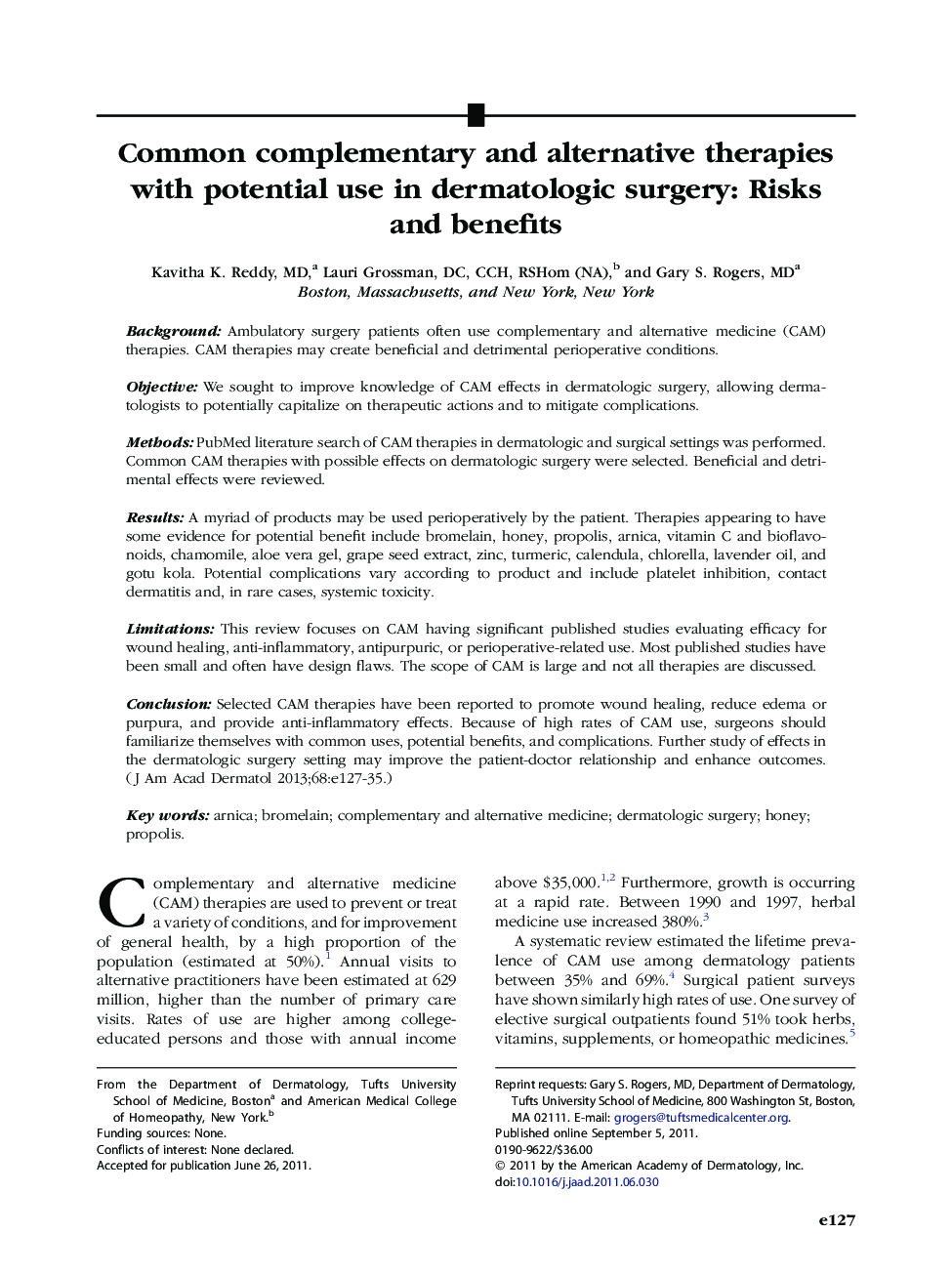| Article ID | Journal | Published Year | Pages | File Type |
|---|---|---|---|---|
| 3205545 | Journal of the American Academy of Dermatology | 2013 | 9 Pages |
BackgroundAmbulatory surgery patients often use complementary and alternative medicine (CAM) therapies. CAM therapies may create beneficial and detrimental perioperative conditions.ObjectiveWe sought to improve knowledge of CAM effects in dermatologic surgery, allowing dermatologists to potentially capitalize on therapeutic actions and to mitigate complications.MethodsPubMed literature search of CAM therapies in dermatologic and surgical settings was performed. Common CAM therapies with possible effects on dermatologic surgery were selected. Beneficial and detri-mental effects were reviewed.ResultsA myriad of products may be used perioperatively by the patient. Therapies appearing to have some evidence for potential benefit include bromelain, honey, propolis, arnica, vitamin C and bioflavonoids, chamomile, aloe vera gel, grape seed extract, zinc, turmeric, calendula, chlorella, lavender oil, and gotu kola. Potential complications vary according to product and include platelet inhibition, contact dermatitis and, in rare cases, systemic toxicity.LimitationsThis review focuses on CAM having significant published studies evaluating efficacy for wound healing, anti-inflammatory, antipurpuric, or perioperative-related use. Most published studies have been small and often have design flaws. The scope of CAM is large and not all therapies are discussed.ConclusionSelected CAM therapies have been reported to promote wound healing, reduce edema or purpura, and provide anti-inflammatory effects. Because of high rates of CAM use, surgeons should familiarize themselves with common uses, potential benefits, and complications. Further study of effects in the dermatologic surgery setting may improve the patient-doctor relationship and enhance outcomes.
